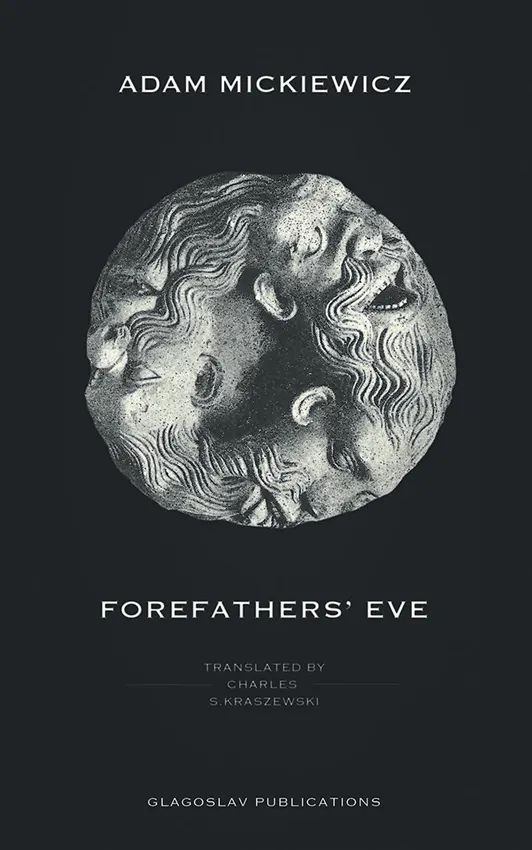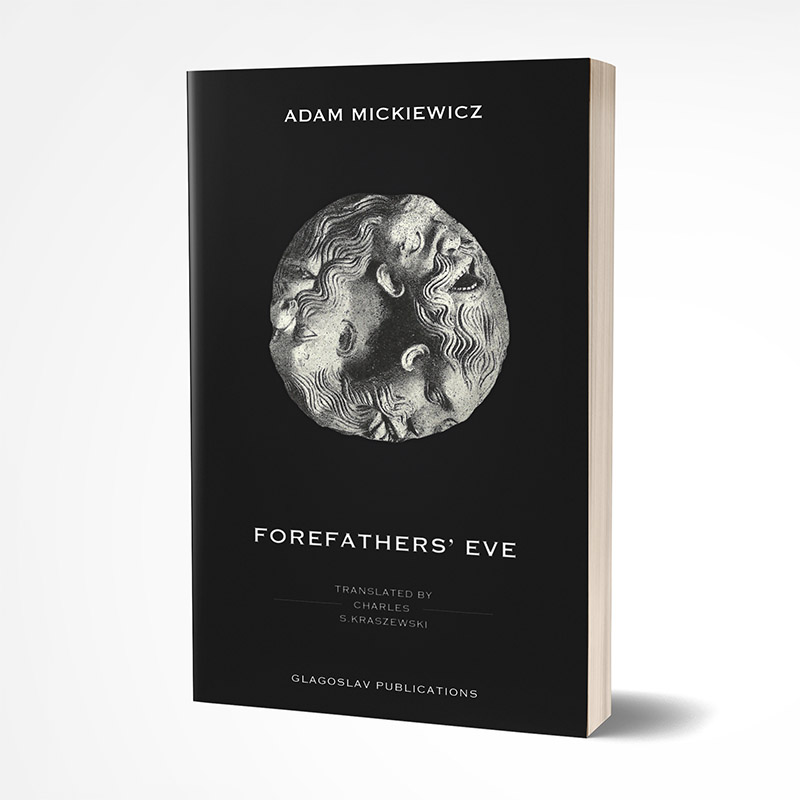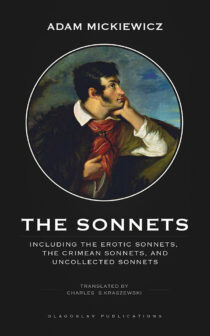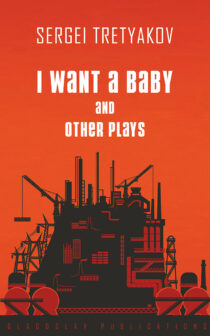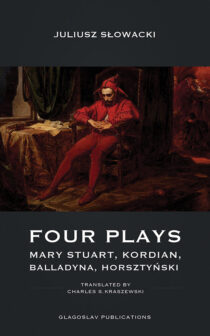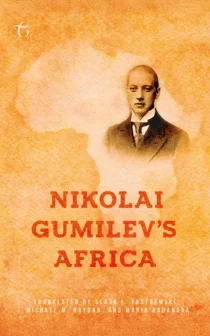Forefathers’ Eve
Price range: €9.95 through €30.30
Author: Adam Mickiewicz
Editor and translator: Charles S. Kraszewski
Introduction and notes: Charles S. Kraszewski
Forefathers’ Eve [Dziady] is a four-part dramatic work begun circa 1820 and completed in 1832 – with Part I published only after the poet’s death, in 1860. The drama’s title refers to Dziady, an ancient Slavic and Lithuanian feast commemorating the dead. This is the grand work of Polish literature, and it is one that elevates Mickiewicz to a position among the “great Europeans” such as Dante and Goethe.
Forefathers’ Eve [Dziady] is a four-part dramatic work begun circa 1820 and completed in 1832 – with Part I published only after the poet’s death, in 1860. The drama’s title refers to Dziady, an ancient Slavic and Lithuanian feast commemorating the dead. This is the grand work of Polish literature, and it is one that elevates Mickiewicz to a position among the “great Europeans” such as Dante and Goethe.
With its Christian background of the Communion of the Saints, revenant spirits, and the interpenetration of the worlds of time and eternity, Forefathers’ Eve speaks to men and women of all times and places. While it is a truly Polish work – Polish actors covet the role of Gustaw/Konrad in the same way that Anglophone actors covet that of Hamlet – it is one of the most universal works of literature written during the nineteenth century. It has been compared to Goethe’s Faust – and rightfully so. Forefathers’ Eve initiated the great contribution of Poland to world theatre: Monumental Drama, which stretches from him through Stanisław Wyspiański to Tadeusz Kantor in our own day and age.
The present translation of Adam Mickiewicz’s Forefathers’ Eve is the first complete verse translation of the cycle published in English. It has been put to use in its entirety by the Teatr Polski in Wrocław, and partially set to music by Arturas Bumšteinas in his contemporary orchestral work Different Trains (2014).
This book was published with the support of the Hanna and Zdzislaw Broncel Charitable Trust.

| Dimensions | N/A |
|---|---|
| Author | Adam Mickiewicz |
| Pages | 416 pages |
| Publication date | 30th October 2016 |
| Book Format | Hardcover, Paperback, EPUB, Kindle |
Author
Adam Mickiewicz
Translator
Charles S. Kraszewski (b. 1962) is a poet and translator. He is the author of three volumes of original verse (Diet of Nails; Beast; Chanameed). Several of his translations of Polish and Czech literature have been published by Glagoslav, among which may be found: Adam Mickiewicz’s Forefathers’ Eve (2016) and Sonnets (2018), Zygmunt Krasiński’s Dramatic Works (2018) and Stanisław Wyspiański’s Acropolis: the Wawel Plays (2017). His translations of the poetry of T.S. Eliot, Robinson Jeffers, and Lawrence Ferlinghetti into Polish have appeared in the Wrocław monthly Odra. He is a member of the Union of Polish Writers Abroad (London) and of the Association of Polish Writers (Kraków).
Endorsements and Review Quotes
“<…> it is clear that Kraszewski’s translation is not only timely, but also a necessary part of the growing interest, in Poland and abroad, of realizing Mickiewicz’s monumental vision in fresh ways for a new, global audience.” John Merchant, Slavic Review
“Kraszewski manages to translate a text almost hermetically bound to its native culture, language, and history thus proving that the play is at least partially translatable. Thanks to his very detailed Introduction readers have not only a general description of the drama and its author, but also particulars of its both universal and national character, its significance in Polish and world literature.” Agata Brajerska-Mazur, The Polish Review
“The translation itself is fronted by the translator’s very insightful introduction, which explains to the English reader the historical circumstances and the literary significance of the Polish masterpiece.” Mieczysław Orski, Odra
“Forefathers’ Eve should be of great interest to those interested in Polish and Romantic literature, in Mickiewicz’s body of literary work, and in how one literary writer presents the Polish view of Russia and the Tsar in his times and what that historical tension between Poland and Russia may mean for the present.” Rev. Kevin Bezner, The Christian Review
“Kraszewski, who has been working on these plays for close to two decades, deserves high praise for his dedication, and his singlevolume edition of the full cycle is a service to readers and teachers of Slavic literature in English.” Boris Dralyuk, The Times Literary Supplement
“Forefathers’ Eve by Adam Mickiewicz and translated by Charles S. Kraszewski is definitely a much-needed volume on your bookshelf.” Mary Lanham, Polish American Journal
“To keep up rhyme, or near-rhyme, for 300 pages of translation is a Herculean task: it sometimes causes Charles Kraszewski to add words or whole lines, use rare words or archaisms, laboured constructions or inexact rhymes that may disturb the ear and seem stylistically inconsistent. Or may pass unnoticed, since our reactions to such things are very personal.” Anita Jones-Debska, Pamiętnik Literacki
